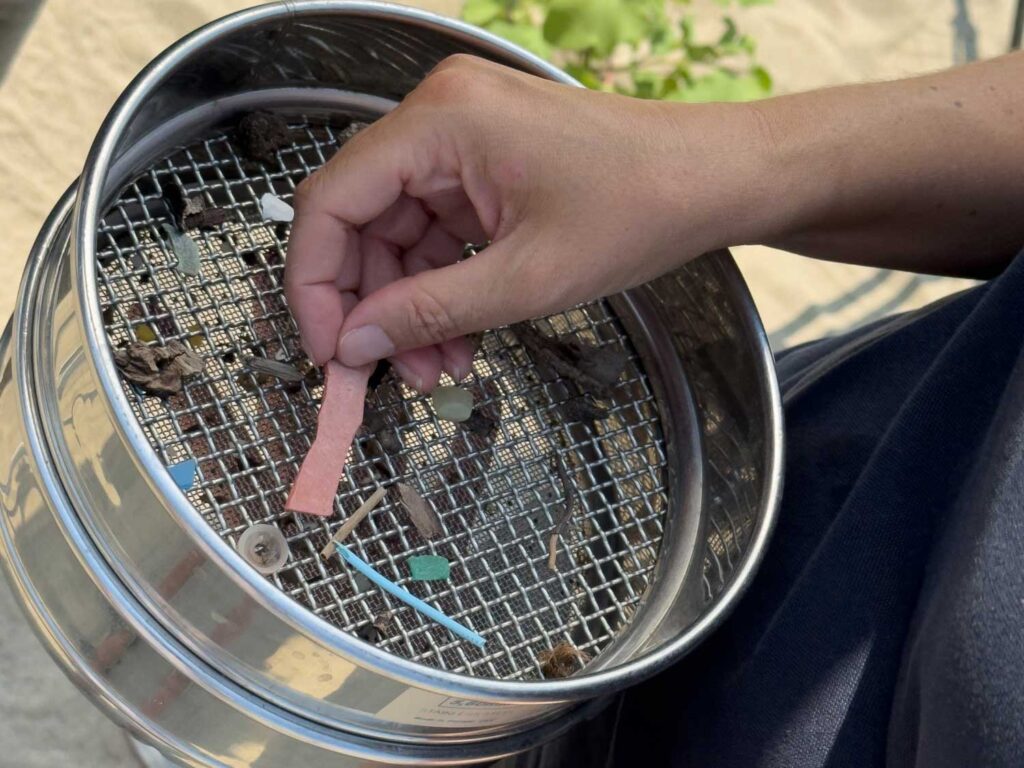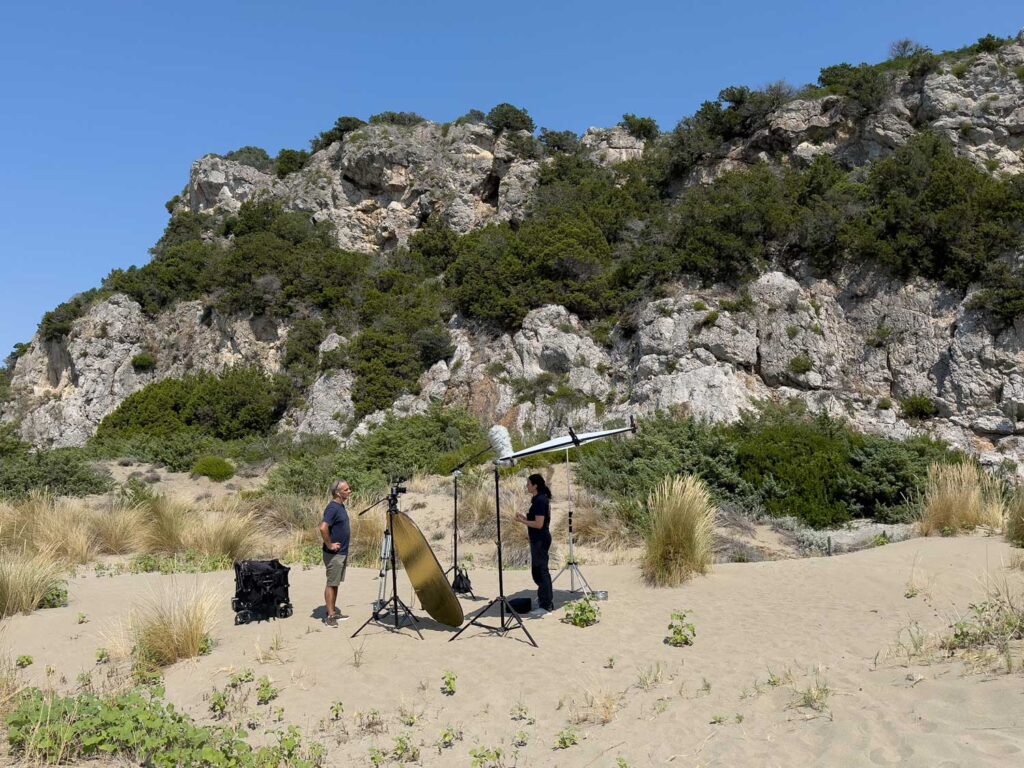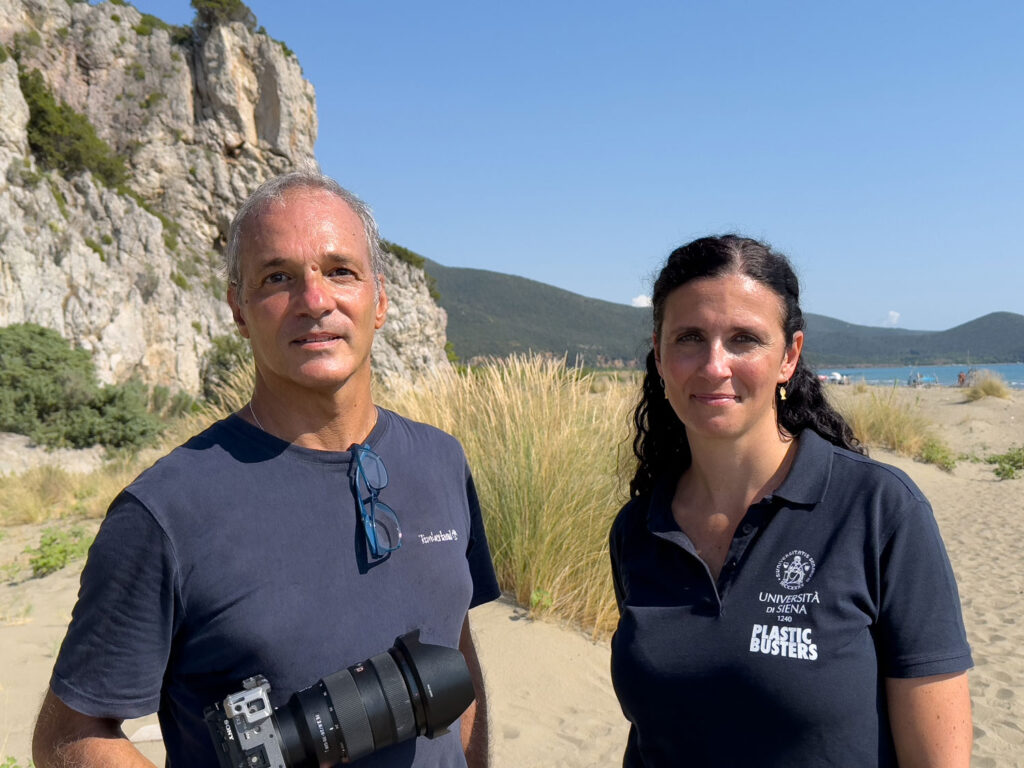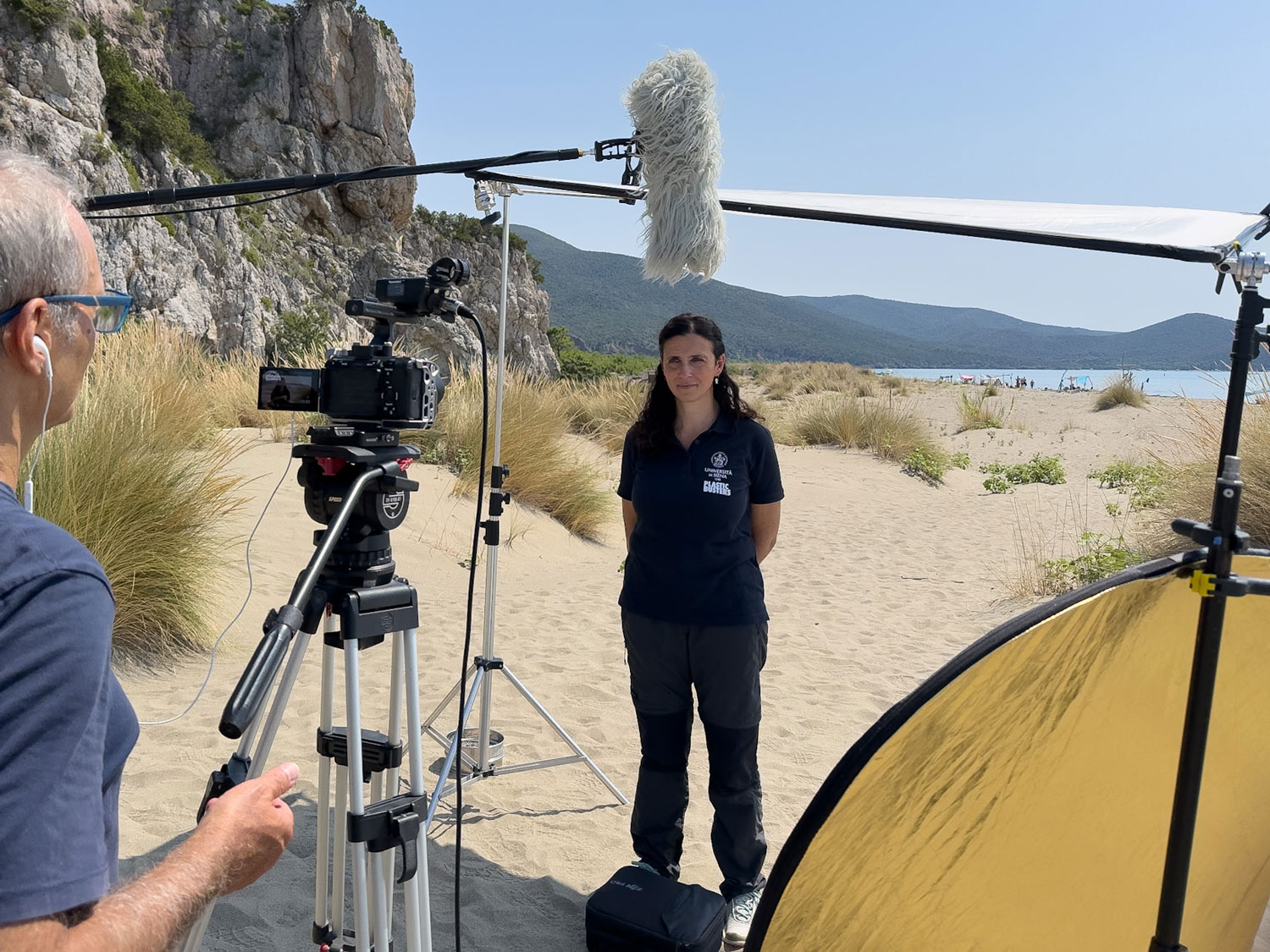Collelungo Beach, in the heart of the Maremma Regional Park, a protected area that preserves unspoiled landscapes where dunes, pine forests, and open sea meet. It was here that I met Professor Cristina Panti from the Department of Physical, Earth and Environmental Sciences at the University of Siena. An ecotoxicologist whose work bridges molecular biology, marine litter, and vulnerable species, Prof. Panti investigates the biological effects of both traditional and emerging pollutants, especially microplastics, on marine organisms, including endangered cetaceans and reptiles, using molecular tools to monitor impacts from the earliest stages of life.

During our conversation, we collected sand samples and observed tiny plastic fragments found along the shoreline: each piece a signal of a broader reality. Prof. Panti explained how microplastics infiltrate aquatic food webs, moving from smaller organisms up to humans, raising questions about their long-term effects on health. Her participation in national and European projects (PRIN, Interreg Med, Life) highlights the relevance of this research not only locally, but across the entire Mediterranean ecosystem.
We discussed biomonitoring, the use of bioindicators to assess environmental contaminants, and the molecular methods her team applies to detect early biological responses in marine organisms, before visible symptoms appear.


The photographs captured that day tell the story of science in action: Prof. Panti during the interview, myself beside her as producer and filmmaker of Plastic Reborn, and the sieve holding the plastic fragments recovered from the sand. These images portray a direct and authentic research process, right at the meeting point of land and water.
This interview reminds us that the core of Plastic Reborn is not marine litter itself, nor the plastic crisis alone, but the people who confront it with science and urgency, armed with knowledge, sensitivity, and the ability to imagine alternatives. Prof. Panti’s voice reinforces the idea that while microplastics may be invisible, their effects ripple through biodiversity and, ultimately, human health.
We would like to thank the Maremma Regional Park for welcoming us to this coastline and allowing our cameras to document a moment of scientific rigor and cinematic discovery. Soon, these voices, hers, and those of the many innovators we are following, will come together to shape a narrative that does more than inform: it inspires change.
scientific support

